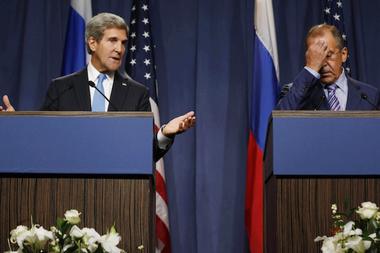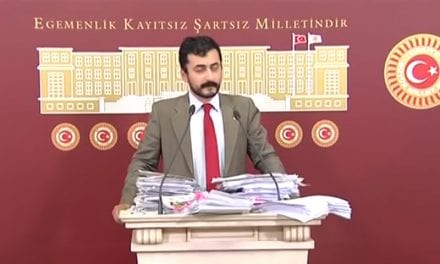By Eric Maurice, Euobserver
Greece and its lenders started new round of talks in Brussels Thursday (30 April), which Athens hopes will lead to an agreement on reforms to unlock a €7.2 billion loan.
The Brussels Group, comprising of experts from the European commission, the European Central Bank, the International Monetary Fund and the European Stability Mechanism, will discuss with their Greek colleagues a set of issues they agreed on during phone calls earlier in the week.
The talks will go on until Sunday and if they go well they will pave the way to a Euroworking group – a meeting of experts from eurozone countries – that would prepare a political deal at the next meeting of euro finance ministers on 11 May.
“They are being held in a constructive spirit. We welcome this step to deepen and intensify contacts,” EU Commission spokesman Margaritas Schinas said on Thursday at a press conference.
Relations between Greece and its EU partners reached a new low last week (24 April), when Greek Finance minister Yanis Varoufakis was scolded by his colleagues and accused of wasting time.
Varoufakis has been a polarising figure in the Eurogroup since he became a minister at the end of January, and some in Athens do not exclude he was deliberately targeted by his colleagues in order to bring home to the Greek goverment that it is isolated.
“It is easy to have a target, but it is different to know if it’s about personality or about the content of the discussion,” a Greek official told EUobserver.
The source also said that the three advisers accompanying Varoufakis in Riga were put up in a hotel five kilometres away from the hotel where all the ministers, including Varoufakis, and all the other delegations were staying
But tensions seem to be easing since Greek prime minister Alexis Tsipras reshuffled his negotiating team at the weekend.
Varoufakis remains finance minister but was removed from the frontline. Deputy foreign affairs minister Euclid Tsakalotos was charged with coordinating a political cell in Athens and Giorgios Houliarakis is leading the negotiating team in the Brussels Group.
Both Tsakalatos and Houliarakis are close to the influential deputy prime minister Yannis Dragasakis, who is said to have advised Tsipras to be more open in the negotiations.
While the move was considered to be a reaction to the Riga meeting, it was in fact planned beforehand to smoothen the negotiating process with the lenders.
“It is a sign that the Greek government is forthcoming in these negotiations, not a stubborn negotiation,” said the Greek source.
[EU finance commissioner] Moscovici said four or five times he wanted to talk with Houliarakis,” the source added.
In Brussels, EU officials note that the team that arrived in Brussels for the talks “has a mandate”.
“They are people close enough to the prime minister and technical experts who know the issue. They are in a position to decide,” a EU official told EUobserver, adding that previous Greek delegation agreed to things before backpedaling after talking with their government.
“The fact that they are more linked to Tsipras is a good sign,” the official said.
A lighter atmosphere does not mean that positions are closer, however.
The EU and IMF continue to insist that the agreement must be a comprehensive one while Greece says the 20 February Eurogroup agreement was about a midterm, limited deal.
While Athens has accepted to proceed with privatisations, something it refused before, others “red lines” remain, such as pension and labour market reforms.
Some floated the idea of an agreement that would leave these issues aside until further talks in order to reach an interim deal in the coming days.
“We could agree on a technical level with a timetable accompanied by specific measures,” the Greek official told this website.
But this is not something the EU is ready to consider for now.
A first step towards an agreement is a bill the Greek government is ready to introduce in parliament, which would prove its commitment to quickly implement reforms asked by the lenders.
“The bill will be introduced after an agreement on its content in the Brussels discussions,” the EU official told this website, although its content remains unclear.



















